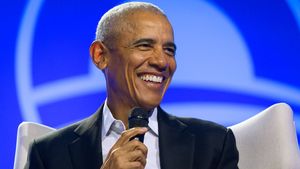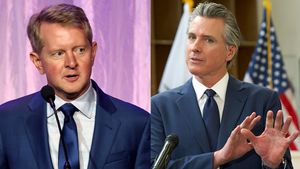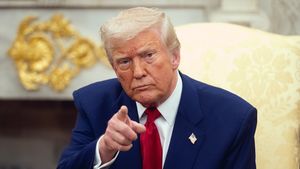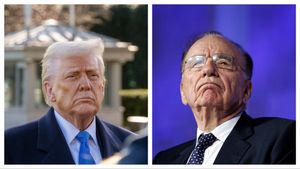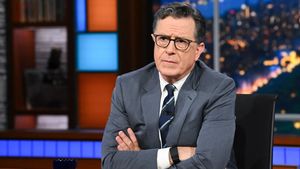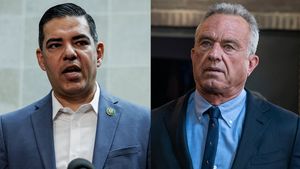Before Judge Amy Comey Barrett gave her opening statement in the Senate hearings seeking to confirm her nomination to the Supreme Court of the United States, she released the transcript. At the time she spoke of her family, and more importantly of her admiration of the noted conservative Justice Antonin Scalia. She described herself, essentially, as a textualist. But anyone with a cursory knowledge of Barrett's background could see through the seemingly mundane words.
"This is what nominees do," former presidential candidate Pete Buttigieg said in response to hearing a section of the statement read off to him. His response was in real-time during an airing of MSNBC's AM Joy. "They write the most seemingly unobjectionable, dry stuff. But really what I see in there is a pathway to judicial activism cloaked in judicial humility." And that is certainly seems to be the track we are on.
On Monday, Judge Barrett actually delivered her opening statement. She was met by opening statements of a few Senators including one by Kamala Harris. In her prepared remarks Harris took the Republicans of the Senate to task for focusing on the confirmation as opposed to the pandemic, and pointed out that the Affordable Care Act is likely a driving cause for the rush. But there was more. She pointed out that Obergefell v Hodges, the Supreme Court case that "recognized that love is love and that marriage equality is the law of the land," was at risk. This decision was recently called into question by two conservative Supreme Court justices, and Barrett would likely be on their side.
In 2017 Lambda Legal, PFLAG National, GLSEN, and 24 other LGBTQ+ groups opposed Barrett being named to the court concluding that her "views on civil rights issues are fundamentally at odds with the notion that [LGBTQ+] people are entitled to equality, liberty, justice, and dignity under the law." Among other things, the signatories to the letter stating as much said they "remain concerned about how her religiously-infused moral beliefs would inform hr judicial decision-making about issues of concern to the communitis that our organizations serve, particularly where personal moral beliefs differ from the requirements of law." In the past Barrett has expressed her view surroundign "marriage and family founded on the indissoluble commitment of a man and a woman." She also has yet to acknowledge any landmark decisions around LGBTQ+ rights as superprecedent, which could call them all into question given her method of deciding cases.
Barrett cemented those criticisms on Tuesday in the first day of questioning in her confirmation hearings. Senator Dianne Feinstein asked Barrett's views on the Defense of Marriage Act and Obergefell rulings, asking that if she agreed with Justice Scalia's decisions who dissented. Barrett refused to answer.
"Well that's really too bad because it's really a fundamental point for large numbers of people in this country," Feinstein said. "I understand you don't want to answer these questions directly but you identify yourself with a Justice that you, like him, would be a consistent vote to roll back hard fought freedoms and protections for the LGBT community. And what I was hoping that you would say is that this would be a point of difference where those freedoms would be respected and you haven't said that."
"Senator, I have no agenda and I do want to be clear that I have never discriminated on the basis of sexual preference and would not ever discriminate on the basis of sexual preference," Barrett replied. "Like racism, I think discrimination is important. On the questions of law, however, I just, because I'm a sitting judge and because you can't answer questions without going through the judicial process, can't give answers to those very specific questions."
The usage of "sexual preference" is not typical law-speak, and indicates that sexuality is a choice. For many it is an out-and-out dogwhistle to religous conservates who would move to deprive queer folks of their rights.
Even with all of this, given the make-up of the senate, it is highly unlikley that there's much that can be done. Barrett is expected to be confirmed as Senators will likely vote along party lines.
RELATED | Watch Pete Buttigieg Dismantle Amy Coney Barrett's Opening Statement

























